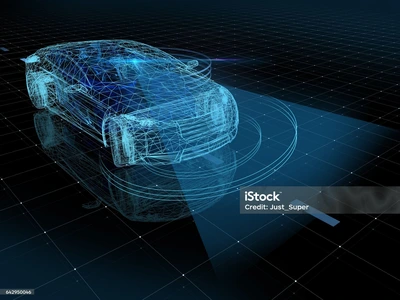If you’ve been considering a new vehicle, now is the time to act. Waiting could mean higher prices, limited inventory, and longer delays. Here’s why buying your vehicle today keeps you ahead of the curve.
### U.S. Tariffs on Chinese Imports
The U.S. has escalated trade policies, imposing steep tariffs on Chinese goods, with rates up to 145% on many products. These tariffs aim to boost domestic manufacturing but impact the automotive industry. China supplies critical auto parts and electronics, and tariffs are raising costs for manufacturers. (Washington Post)
For consumers, vehicle prices are likely to rise significantly. Analysts estimate tariffs could increase car costs by $5,000 to $10,000. China’s retaliation, with 125% tariffs on U.S. goods and restricted exports of rare-earth minerals used in semiconductors, strains supply chains. This will lead to fewer vehicles on lots and higher sticker prices. (CBS News)
### Computer Chip Shortages
Modern vehicles rely on semiconductor chips for engine control, infotainment, and more. The global chip supply chain, dependent on Taiwan (92% of advanced chip production) and China (rare-earth minerals), faces challenges. (AP News)
U.S. investigations into chip imports for security reasons signal potential tariffs. Though chips are exempt from the steepest tariffs now, the Trump administration plans sector-specific tariffs soon. These aim to boost U.S. chip production, but scaling up will take years, leaving automakers vulnerable to shortages. (NY Times)
Beijing’s suspension of rare-earth mineral exports disrupts chip manufacturing. The National Bureau of Economic Research reports chip shortages have cut global output by 10-15% since 2020, and new restrictions will worsen this. Automakers struggling to secure chips face production delays, reducing vehicles available.
### A Vehicle Shortage Is Coming
Tariffs and chip shortages create a perfect storm for the auto industry. Here’s how:
1. **Higher Costs**: Tariffs on Chinese parts and potential chip tariffs raise manufacturing costs, passed to consumers or cutting production.
2. **Supply Bottlenecks**: Restrictions on minerals and chips slow vehicle assembly, reducing cars at dealerships.
3. **Global Effects**: The U.S.-China trade war impacts supply chains worldwide, affecting automakers in Europe, Japan, and beyond.
4. **Consumer Impact**: As inventory shrinks, buyers face limited choices, longer waits, and higher prices. Some dealers report canceled orders and cargo delays due to tariffs.
### Act Now
Buy your vehicle today to avoid the fallout from tariffs and chip shortages. Here’s why:
- **Lock in Prices**: Vehicle prices are climbing but lower than the projected $5,000-$10,000 increases from tariffs.
- **Avoid Shortages**: Dealerships report tighter inventories as supply chains falter. Securing your vehicle now ensures your preferred model.
- **Beat the Rush**: As shortages spread, demand will surge, leading to bidding wars and waitlists. Buying now keeps you ahead.
- **Protect Your Budget**: With a recession looming, purchasing now safeguards against economic uncertainty.
### Take Action Today
Don’t wait for the vehicle shortage to hit. Visit your us today or explore our inventory online to find the car, truck, or SUV you need. By acting now, you’ll save money, secure your vehicle, and avoid a shrinking market.
The time to buy is now. Don’t let tariffs and chip shortages leave you stranded—drive home your new vehicle today!












